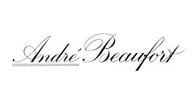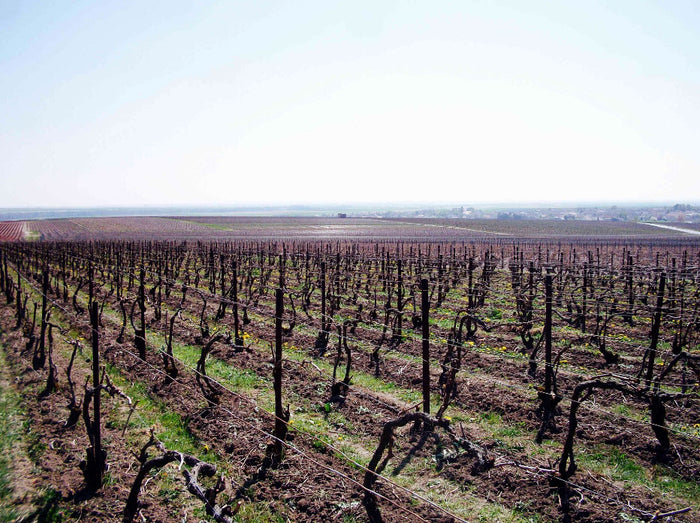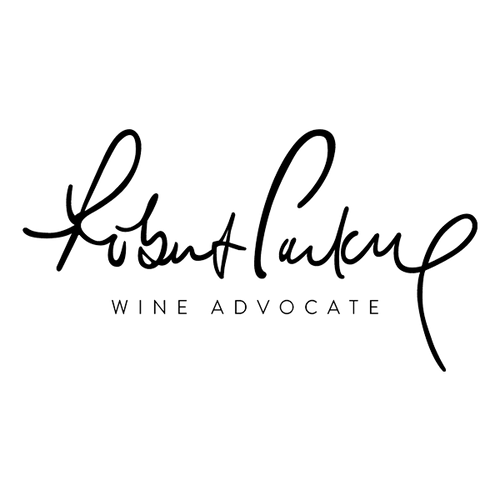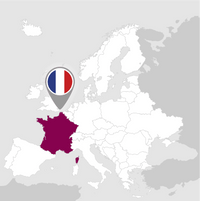Description
Organic Brut Nature Champagne, produced by André Beaufort in the Champagne region of France. 0.75L bottle. An authentic expression of the Ambonnay terroir, with a biodynamic approach that enhances the purity of the fruit. The nose is complex, with notes of candied fruit and hints of citrus that blend into an elegant and refined bouquet. The perlage is fine, while the palate is fresh, mineral, and persistent, a true ode to nature.
Awards
Details

Perlage

Perfume

Color

Taste
Serve at:
06 - 08 °C.
Longevity:
05 - 10 years

Pairings
- Bottles produced: 1.969
A peculiarity: the wines are still "to the volley", not folklore, but because Beaufort breathes once more the wine of each bottle can understand and perfect it. In order not to use herbicides but contain weeds, we work the soil with the hoe, taking care not to inhale the vine roots. The soil is enriched with vegetable compost produced in the company enriched with meat and bone and blood meal. This preparation is scattered across all vineyards by protecting it from drought and helping to maintain the amount of humus needed for soil organic. Erosion is virtually nothing because soil, thanks to compost, mechanical machining and the presence of organisms such as earthworms, is permeable and well drained so that the enrichment of groundwater groundwater (minimizing the effects of floods and droughts) .
In the vineyards you work all year long. In February and March, after frost, the pruning works begin to contain yields and get better ripening. At the beginning of June, the branches of the vineyard were linked to parallel iron wires, then shredded several times during the summer. Towards the middle of June, after flowering, it is possible to evaluate the yields of the vintage. In organic agriculture production is lower. In the first years of conversion, yields declined by one third.
The main fungal diseases are mildew and oidio. For their treatment, biological regulation allows the use of copper and sulfur. However, these products have a certain toxicity that creates imbalance in wildlife. For this reason, the Beaufort since 1974 have experimented with the use of essential oils that limit the development of diseases and since 1980 have explored the field of homeopathy. It must be acknowledged, however, that in some climatically difficult times, nature affirms its supremacy. The biggest losses are caused in the spring because of frosts that weaken the vine and make it more susceptible to fungal diseases. Approximately one hundred days after flowering began harvest, from mid September to early October. The date is set by prefecture ordinance but the Beaufort evaluates the maturation.
The pressing of grapes is carried out immediately after harvesting. The must flows from the press into the decanting tanks where it will remain at least 12 hours so that all solid elements settle down. Often a second "blur" is performed. The must is then poured into barrels or tubs where alcoholic fermentation is triggered by indigenous yeasts. Once the fermentation has been completed and a quiet wine is obtained, during the winter, it is poured. To avoid using too much SO2, in the spring let malolactic fermentation spontaneously activate. This second fermentation softens the wine slightly, which is why many "maison" re-enter it, but Beaufort thinks that "everybody has his style". At this point bottling takes place, with the addition of unrefined cane sugar or concentrated grape must and natural yeasts. The bottles remain so for months or years. Champagne legislation requires a minimum of fifteen months for a non-millennium and three years for millennia. But a vintage Champagne flourishes at least five years on its yeast. The elimination of the deposit (mouthpiece) is carried out by hand at "the vole" after about a month of "remuage" stirring on the "pupitre" to converge the "bottom" towards the neck of the bottle. During this process wine is oxygenated, contributing to its development. However, this oxygenation must be limited to avoid undesirable oxidation phenomena. Read more


| Name | Andre Beaufort Champagne Ambonnay Grand Cru Reserve Brut Nature |
|---|---|
| Type | White organic classic method sparkling wine pas dosé |
| Denomination | Champagne AOC |
| Size | 0,75 l |
| Alcohol content | 12.0% by volume |
| Grape varieties | Chardonnay, Pinot Nero |
| Country | France |
| Region | Champagne region |
| Vendor | Andre Beaufort |
| Allergens | Contains sulphites |







